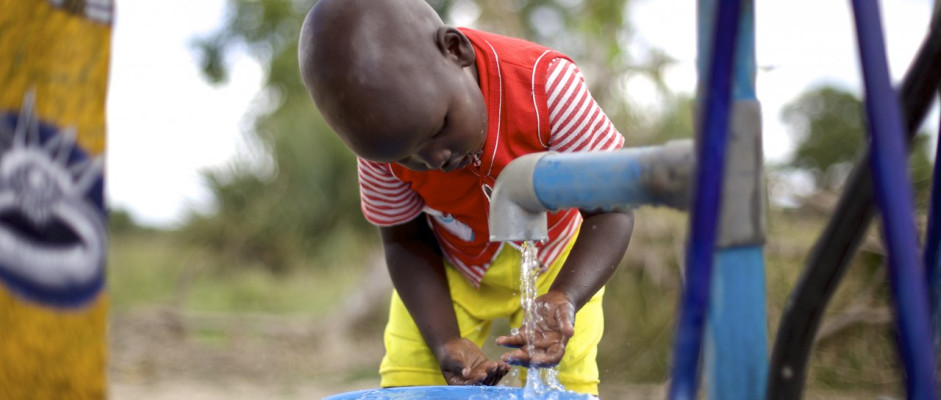
What is the social and/or ecological challenge?
Despite a quadrupling of funding for water and sanitation since 2002, Tanzania is not on track to meet Millennium Development Goals for the provision of access to water. Nationwide, 53% of the population (26.0 million) does not have access to improved water sources. Within the last decade, rural coverage has decreased by an estimated 9% (Ministry of Water Tanzania, 2013). An estimated 50% of water points in the country are broken and abandoned (Taylor, 2009). The constant increase in population size and density further increases the pressure on the water sector for delivering programs that increase coverage and sustainability of water infrastructure. This need is not limited to Tanzania. Reasons for the low sustainability of implemented approaches include the use of top-down delivery and management models (without community participation and ownership), the use of foreign and expensive technologies and the nonexistence of skilled mechanics at community level. New innovative, cost-efficient and locally adapted approaches are required to improve coverage and enable communities and governments to keep installed water points in operation. Sustainable management of existing assets is regarded as key for guaranteeing increase access to water through cost-efficient approaches. Repair and rehabilitation of existing infrastructure is not only cheaper compared to creation of new water points but is also more ecological and protective of water resources.
The social entrepreneurial approach
MSABI aims at further developing, validating and expanding an innovative approach for the delivery of sustainable water services in developing countries.
The social entrepreneurial initiative intends to further validate and regionally scale a subscription based system for water point maintenance, branded Pump for Life. The system consists of private sector driven proactive (monthly) and reactive maintenance and repair services in exchange for a monthly (or annual) subscription premium. The premium can be paid through mobile phone money transfer services, making it accessible to people in remote areas with no access to conventional banking. Maintenance is performed by a decentralized network of mechanics, who are situated in strategic hub locations to maximize operational efficiency. An advanced Information and Communication Technology (ICT) water point surveillance-response system is used to monitor distribution and functionality of water points, subscription premium payments, and track spare part usage and water point history. The system allows constant data driven business model optimization. MSABI uses many elements of modern subscription and data driven systems in other sectors. The payment systems with regular premiums ensures financial resources are available at any point in time. This is expected to be a game changer in guaranteeing water access reliability compared to conventional systems.
Goals and expected impact
The market based water program is available to all communities within the areas MSABI currently operates. Through mobile teams and equipment, areas not served by conventional development programs (implemented by government or other CSOs) can be reached. The program will impact health, well-being and livelihoods of stakeholders at different levels. Diarrheal disease caused by limited access to safe and clean water, sanitation or hygiene services, still results in a 9% mortality in children under the age of five and 6% in the adult population (WHO, 2006). Delivery of services through private sector players stimulates economy on a local, regional scale and therefore improves rural development and positively impacts lives in remote areas (impact also proven by MSABI data). Government and aid agencies will benefit from the validation and scaling of a cost-efficient program.
Over the following 5 years MSABI plans to further develop and validate Pump for Life to reach financial viability, expand the subscription scheme to an average of 100 additional water points per year within the first 3 years (total 80,000 people), proof the concept to more rapidly scale in year 3 to 5 and reach financial viability
Project Location
| Position | Location |
|---|---|
| MSABI | Ifakara, Morogoro, Tanzania |

